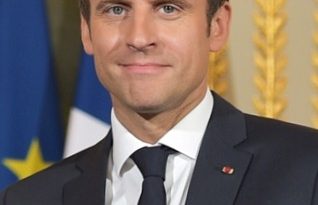FOCUS: Ceasefire/Peacemaking Efforts in Sudan
Sophia Alicea
Staff Writer
The complexity of Sudan’s civil conflict, driven by entrenched grievances among the warring parties, religious divisions, ethnic struggles, competition for oil, and mistrust, lead the country to have a steep uphill climb to peace. The implementation and maintenance of peace have been impeded by breaches, insufficient monitoring systems, and conflicting interests among involved parties. Even with continuous foreign mediation attempts, achieving enduring peace in Sudan has proven challenging due to the lack of thorough reconciliation processes and the brittleness of political accords.
It’s been nearly 10 months since the lives of Sudanese people changed forever amongst a resurgence of the country’s civil 3ar. The Council on Foreign Relations reported that over 10,000 people have been killed and 5.6 million have been displaced by the conflict; of these, 80,000 are internally displaced and hundreds of thousands have fled to dangerous regions in South Sudan, Ethiopia, and Chad.
Sudan, which was once one of the continent’s most prosperous nations, is now on a one-way crash course to becoming a failed state. The conflict started as a political discourse between two generals. After rising hostilities between state military head Gen. Abdel-Fattah Burhan and Gen. Mohammed Hamdan Dagalo, commander of the paramilitary Rapid Support Forces, the two rival forces broke out in open combat in mid-April in Khartoum and other parts of the country. Since, Sudan has descended into instability, as noted by NPR. The conflict has left millions of civilians in what many scholars have coined as a “senseless war” and one of the biggest displacement crises globally, according to UN News.
Although the conflict between the two generals catalyzed the current crisis, the conflicts the countries have faced go back to December 19, 2018, when Gen. Burhan and Gen. Dagalo answered the public’s cry for democracy and joined together to stage a coup against the former President of Sudan, Omar al-Bashir, for his violent military regime. According to a report by VOX, the two generals’ involvement only resulted in a broken promise for democracy and left millions of Sudanese people in the crossfire of the generals’ political goals.
Sudan’s history has been defined by coup after coup from military personnel. Knowing that history, former President Bashir tried his best to avoid that same fate. He turned to General Digalo, one of the leaders of Sudan’s most violent militia Janjaweed, to secure more lucrative oil goods in the farther regions of Sudan at any cost. This led Janjaweed to be given official paramilitary force status as the Rapid Support Forces (RSF).
Al Jazeera reported that the RSF has been deemed a paramilitary group because of its involvement in violence, crimes, and violations of human rights in Sudan. General Dagalo has been charged with organizing violent campaigns against civilians under RSF’s operations, including extrajudicial executions, sexual assault, torture, arbitrary detentions, and targeting of ethnic minorities in war areas such as Darfur. Much of this force’s unfavorable reputation both locally and abroad is a result of its ethnic genocide of the Darfur people, which has led to an investigation by the International Criminal Court.
Soon after the investigations began in 2019, CBS News reported the RSF killed over 100 sit-in pro-democracy protestors, leading the United States, their Arab allies, the United Kingdom, Ethiopia, and the African Union to begin to step up against the injustices in the region and promote democratic efforts. The cooperation of these nations and organizations raised awareness of the Sudanese issue on a global scale. They put diplomatic pressure on the Sudanese government to deal with abuses of human rights, enact democratic changes, and hold peace talks with rebel organizations. Despite international players additionally supporting initiatives aimed at bolstering democratic institutions, advancing human rights, and enabling free and fair elections, the two generals have continued to militarize the nation placing hundreds of thousands of armed soldiers in every village imaginable.
Reuters reported on January 2 that the RSF is now open to talking about an immediate ceasefire; however, ceasefires in the conflict have routinely been broken. Negotiations between the two parties have essentially gone nowhere. It is hard to discern the legitimacy of their ceasefire attempts given the lack of cooperation historically, especially after the U.S. has accused them of committing war crimes and crimes against humanity. The likelihood of a long-term ceasefire and enduring peace in Sudan is still unclear and dependent on several variables. Even though there has been a lot of progress—signing peace agreements and forming a transitional government—there are still many obstacles to overcome, including the presence of rebel groups, security concerns, economic strain, and the impending necessity for political transformation.
Image courtesy of Getty Images

